The Corsair A115 CPU Cooler Review: Massive Air Cooler Is Effective, But Expensive
by E. Fylladitakis on January 22, 2024 10:00 AM EST- Posted in
- Cases/Cooling/PSUs
- Corsair
- CPU cooler
- Air Cooling
Testing Results, Maximum Fan Speed
To begin with, we are taking a look at the Corsair A115 with its stock 140 mm fans running at their maximum speed. Both fans run at exactly 1600 RPM, suggesting exceptional quality control.
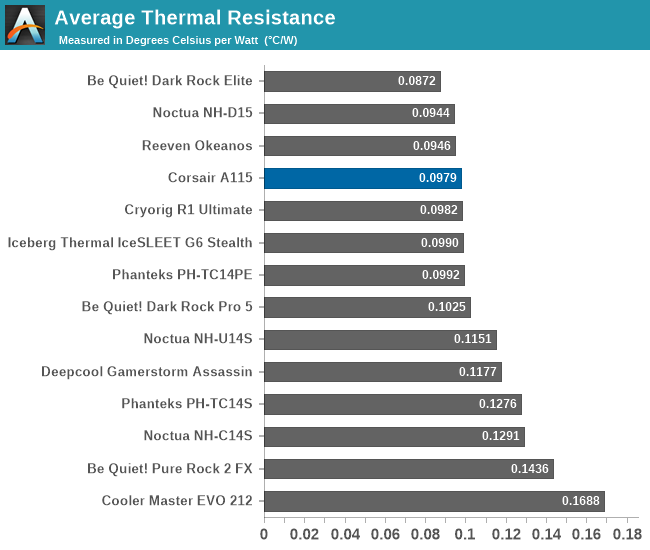

| Core Temperature, Constant Thermal Load (Max Fan Speed) |
The performance data of the Corsair A115 places it as a strong contender in the high-end air-cooling market, with its thermal resistance in line with many competitive products. With an average thermal resistance of 0.0979 °C/W at maximum fan speed, it shows adeptness in handling high thermal loads, even though it may not be the top performer in every scenario. The cooler is particularly effective under heavier loads, aligning with its design for demanding CPU applications, yet seems to struggle to keep performance figures high when the load is low.
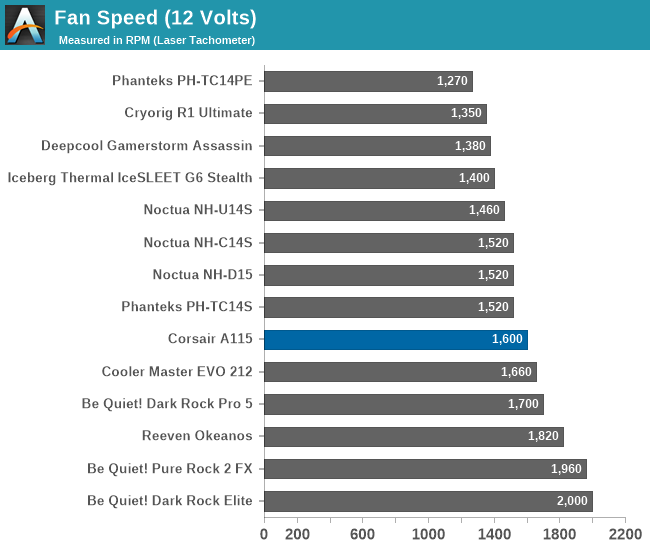
The A115's fans and design manage to keep noise levels relatively low. There is little-to-no turbulence noise, suggesting both low airflow resistance and intended design. At full speed, the noise level reaches 37.2 dB(A), which is quite manageable, especially considering the cooler's dual 140 mm fan setup. This level of noise, albeit not the quietest, is commendable for a cooler operating at this capacity, indicating a good balance between cooling efficiency and noise control.
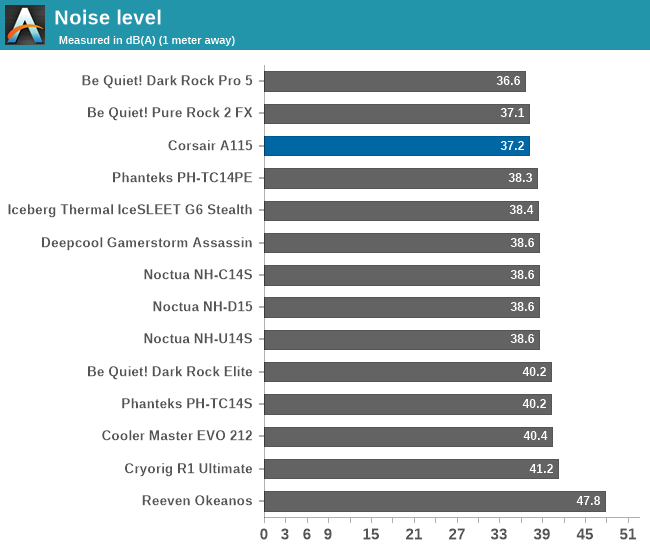
Testing Results, Low Fan Speed
In this test we are switching things up a bit, taking a look at the cooler’s performance with the AF140 fans taken down to half speed.
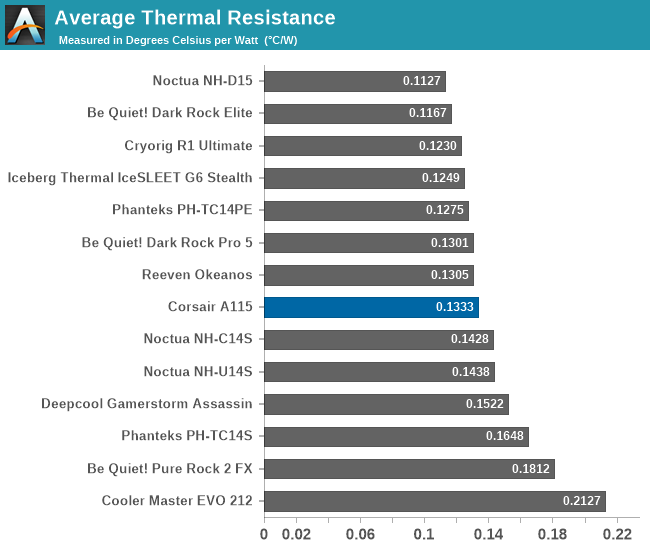
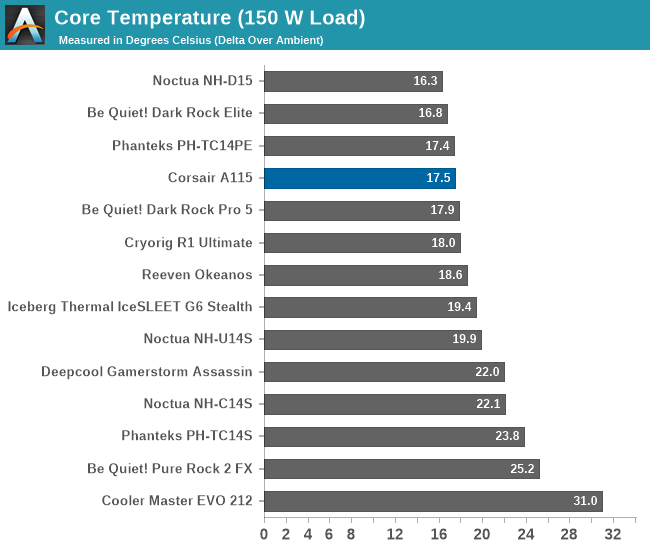
| Core Temperature, Constant Thermal Load (Low Fan Speed) |
Lowering the fan speed of the Corsair A115 to 800 RPM inevitably affects its thermal performance, albeit slightly more than one might expect theoretically. With an average thermal resistance rising to 0.1333 °C/W at this reduced speed, the cooler's performance remains excellent, but it does lose some competitive edge against major rivals in terms of raw thermal efficiency. While still performing admirably, it doesn't hold the top position in thermal performance charts, and its acoustic performance under these conditions becomes an important factor.
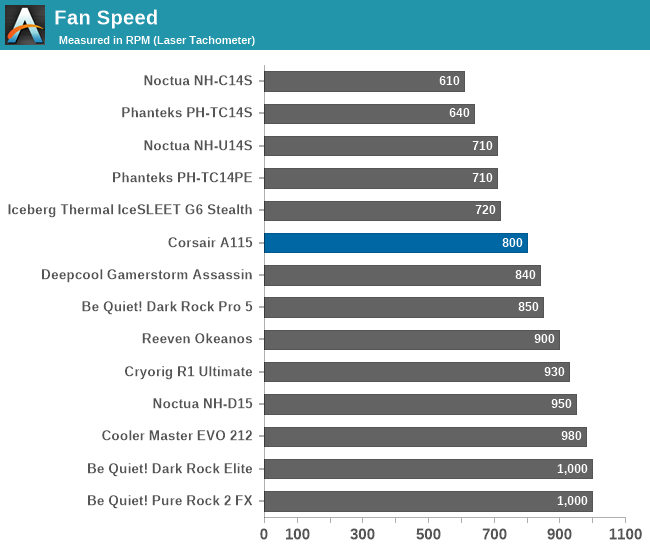
At this 800 RPM speed, the noise level of the A115 drops to 32.6 dB(A). This level is very quiet, barely noticeable in typical home office environments. The cooler becomes virtually undetectable except in extremely quiet settings, where there are no other sources of noise. Regardless, that kind of performance is not out-of-reach for most of its direct competition.
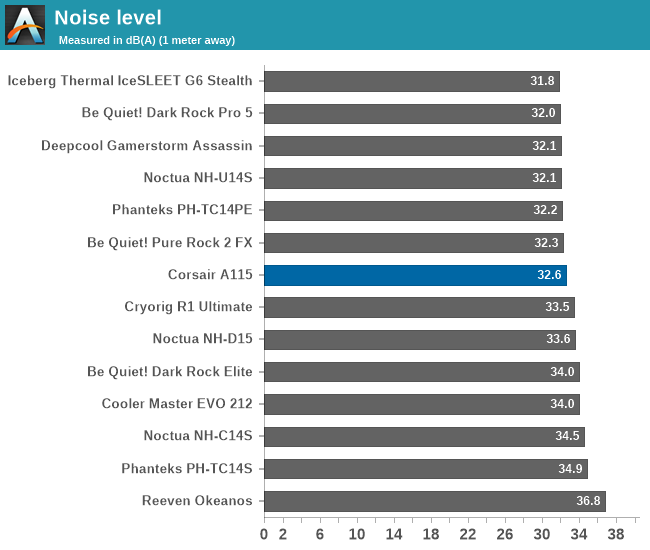
Thermal Resistance VS Sound Pressure Level
During our thermal resistance vs. sound pressure level test, we maintain a steady 100W thermal load and assess the overall performance of the coolers by taking multiple temperature and sound pressure level readings within the operating range of the stock cooling fans. The result is a graph that depicts the absolute thermal resistance of the cooler in comparison to the noise generated. For both the sound pressure level and absolute thermal resistance readings, lower figures are better.
The performance analysis of the Corsair A115 CPU cooler, when compared to industry benchmarks like Noctua's NH-D15 and Be Quiet!'s Dark Rock Elite, is quite revealing. At its maximum fan speed of 1600 RPM, the A115 matches the cooling performance of these renowned competitors, an impressive accomplishment considering its straightforward design. However, when the fan speeds are reduced to 800 RPM, the A115 tends to fall slightly behind in performance. The potential use of MagLev fans in the A115 could offer an advantage, potentially lowering its performance curve and giving it a slight edge over competitors in certain scenarios.


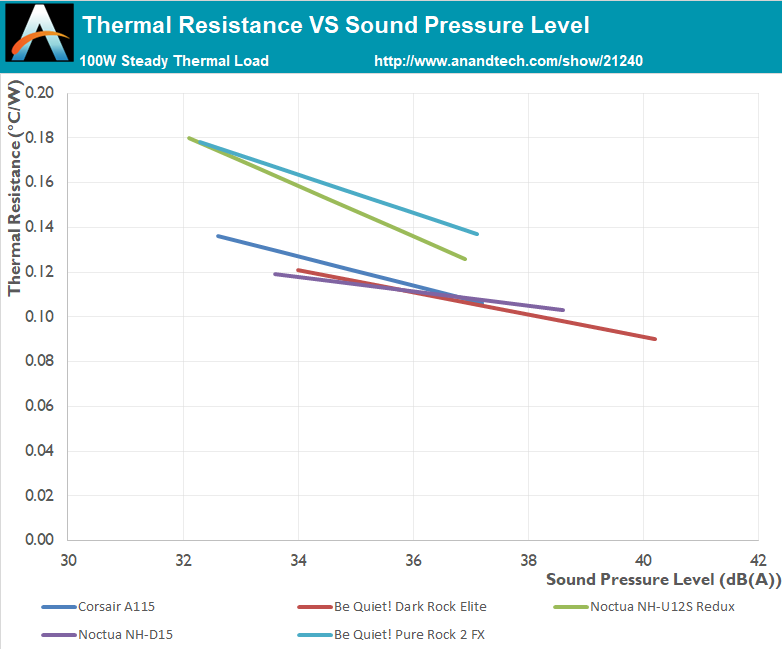








22 Comments
View All Comments
TheinsanegamerN - Monday, January 29, 2024 - link
Yeah my "light gaming fun" needs more power then a 15W fanless GPU can provide. If one only needed a mini PC then one wouldnt need a big custom desktop, and if they DID have that, they wouldnt be placing a significant thermal load to be worried about dust anyway.PeachNCream - Wednesday, January 31, 2024 - link
You misidentify wants as needs when you say you need more power.